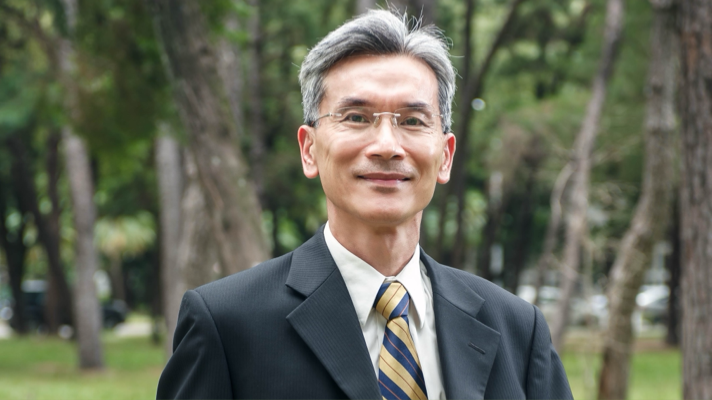By: Shieu Fuh-sheng, Minister of Environment, Republic of China (Taiwan)
Climate change is impacting the world at an unprecedented rate. The concentration of greenhouse gases in the atmosphere continues to rise and global average temperatures have reached record highs. But it is not too late. If we act now, we can still achieve a livable and sustainable future. Taiwan is working together with the international community toward the common goal of net-zero emissions. It is looking for opportunities to contribute its strengths in green and other technologies. With the world facing the threat of climate change and the challenge of supply chainrestructuring, Taiwan is a reliable, secure, andtrustworthy partner.
This February, President Tsai Ing-wen announced the enactment of the Climate Change Response Act,codifying the 2050 net-zero emissions goal into law. By elevating the net-zero target from a policy declaration to a legal requirement, Taiwan has demonstrated its determination to cut emissions. The government is setting up a carbon pricing mechanism and introducing financial incentives to guide businesses towardsustainable, low-carbon development. In 2022, Taiwan published its Pathway to Net-Zero Emissions in 2050and announced 12 key strategies for net-zero transition. Based on the twin governance foundations of technology research and development and climate legislation,Taiwan is stepping up energy, industrial, lifestyle, and social transition. The first phase (2023 to 2026) of the net-zero science and technology program will focus onfive main development areas—sustainable and future-oriented energy sources, low-carbon and carbon reduction, negative carbon emissions, the circular economy, and humanities and social sciences. The program will promote net-zero technology research, development, and applications.
Taiwan has achieved outstanding results in energy transition. For the past 10 years, energy intensity has improved by an annual average of 2.9 percent. According to a 2022 report published by the American Council for an Energy-Efficient Economy, Taiwan’s energy efficiency has risen to eighth in the world, second only to Japan in Asia. Over the last five years, Taiwan’s installed capacity of renewable energy has grown by an average of 21.9 percent each year. The global average is 9.1 percent. Taiwan has outperformed its Asian neighbors including the Republic of Korea, China, and Japan. In 2023, the combined capacity of wind and solar power installations in Taiwan reached around 13.9 gigawatts, a sevenfold increase from 2016. A total of 264 offshore wind turbines have been installed nationwide. Renewable energy is expected to generate 10 percent of all Taiwan’s electricity this year. To ensure a stable power supply and reduce air pollution and carbon emissions, the government will continue to maximize the development of green power and future-oriented energy and further improve energy efficiency.Through these efforts, together with complementary measures such as developing diversified energy storage and strengthening power grid resilience, Taiwan is steadily achieving energy transition.
As more countries commit to net-zero emissions, Taiwan has made structural reforms to consolidate its environmental authorities and strengthen administrative capacity. This August, the Environmental Protection Administration was restructured and upgraded to the Ministry of Environment (MOE). Its newly establishedClimate Change Administration coordinates efforts to respond to climate change and reduce greenhouse gases.The results of scientific research on climate change and the implementation of adaptation actions have been published in the Adaptation Communication report.Taiwan also set up an interdisciplinary team to compile the Climate Change Adaptation Action Plan. The initiative promotes nature-based solutions and empowersvulnerable groups. These efforts aim to boost Taiwan’s overall capacity to respond to climate change, protect public safety, and promote national sustainable development.
Over 70 percent of Taiwan’s resources are imported. But in 2022, the municipal waste recycling rate reached 59.5percent and the industrial waste reuse rate rose to 86.5percent. Through the newly established Resource Circulation Administration under the MOE, the previous focus on controlling pollution has shifted to developing overall resource circulation, improving the efficiency of environmental governance, developing a circular economy, and introducing the concept of zero-waste. Building on existing solid foundations, Taiwan has formulated three circulation strategies—using green designs for waste reduction at the source, recycling and reusing resources, and balancing and managing waste treatment capacity. A well-functioning circular network will be created in coordination with upstream, midstream, and downstream industries. Taiwan is also developing innovative technologies and systems to support resource circulation and accelerate progress toward the vision of zero-waste and net-zero emissions.
Taiwan is an export-oriented economy. Its business operations are heavily influenced by international conditions and regulations. With the global trends toward carbon border adjustment mechanisms and green supply chain requirements, the government has established an interministerial coordination mechanism to help companies understand and reduce the carbon content of their products and promote a carbon pricing system. Taiwan’s Green Finance Action Plan supportsthe low-carbon transition of industry by steering capital investment to green or sustainable businesses; improvingthe environmental, social, and corporate governance of Taiwanese companies; and strengthening their sustainable development. The Taiwan Carbon Solution Exchange (TCX), established this August, creates incentives for enterprises to reduce carbon emissionsthrough market trading and exchanges. The TCX alsopromotes low-carbon technology research and development, strengthens carbon market talentcultivation, and drives the virtuous cycle of the green economy.
As a force for good in the world, Taiwan continues to pragmatically seek opportunities to contribute to the international community, despite encountering multiple obstacles. Leveraging its advantages and strengths in green technology development, Taiwan can apply its expertise to programs in fields such as disaster relief, disaster prevention, the environment, medicine, public health, and green energy. We look forward to the Taiwanese people gaining equal access to the work of the United Nations Framework Convention on Climate Change. We hope that Taiwan will be able to join international cooperation mechanisms to address climate change, participate in negotiations related to the Paris Agreement, and take collective action with the international community to jointly overcome the climate crisis. Taiwan is an important part of the solution and a reliable, secure, and trustworthy partner as the world confronts the mounting threat of climate change and adjusts to the restructuring of supply chains.













